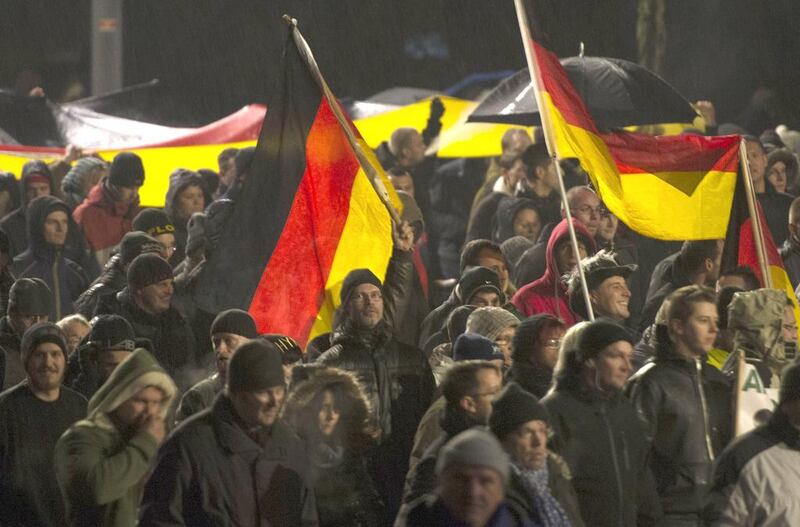Judgmental eyes will be on Muslims in the wake of the Paris shootings. Some media outlets and political actors will be happy to play on the average European’s suspicions of the community. In the immediate aftermath of the Charlie Hebdo shooting, Nigel Farage, leader of the UK’s Independence Party, denounced the “gross policy of multiculturalism”and warned of a “fifth column”. This will affect the visibly different citizens and residents of the European Union.
This is sad but it should not give Muslims the excuse to slide deeper into the victim narrative. After all, this is what led the gunmen – members of a troubled sociological segment who came from a broken home – to, in their words, “avenge the prophet”. They failed to understand that publications like Charlie Hebdo also draw pictures that ridicule the Pope and rabbis.
Why did the gunmen not “avenge” the Virgin Mary for the cartoon that showed her giving birth to Jesus? Mary is a prominent figure within Islam, with an entire Quranic chapter on her.
Of course, Charlie Hebdo was unusually provocative when it came to Muslim matters. And of course, freedom of expression should not transgress basic good taste. But the mindset that allows the French to accept such cartoons is one that also allows for great candour on national television about difficult questions, such as Israel’s right to exist. Such questions are practically unheard of in almost any other western European country.
The offensiveness of Charlie Hebdo’s cartoons shouldn’t be an excuse for the Muslim world to wallow in the belief that the world hates it. Many Muslims believe that hatred of the faith and those who practice it, even supersedes racism.
It is true that the rise of ISIL is making life harder for Muslims in the West, but this is more on account of the media focus on the community after the September 11 attacks and the launch of the so-called war on terror. That is the reason for the suspicion of Muslims, not some plot within the hearts of non-Muslims.
Some would argue that Muslims should stop believing that they are being singled out because they bear witness to the truth that was revealed by the Prophet. They should also stop believing that those who judge them are descendants of those who hate the truth.
That said, having lived in France the year that the headscarf and other symbols of faith were banned in public buildings, I can honestly say that Muslims and others who look “foreign” do face a significant challenge. I experienced my fair share of unwanted attention during that period. It is a big challenge, and yes, it’s not fair. But it might be wise to consider the facts. Some people who call themselves Muslim have indulged in acts that give the community a bad reputation. Recognising this will make it that much easier to contextualise the growing resentment.
The Prophet, it is said, put up with worse insults than those directed at his followers through the cartoons. And he did precisely the opposite of what the gunmen did. There is a Quranic verse that advises “patience in the face of mockery and graceful concession” with a view to long-term benefit rather than to accept humiliation. It would be helpful if this Quranic verse were repeatedly quoted and picked apart both by Muslims and those who are suspicious of them.
As the world’s attention remains focused on the Paris attacks, it’s fair to say that the deaths of hundreds of Yemenis, Syrians and Iraqis in conflicts in the region will probably fall off the news agenda. Will intolerance against visibly Muslim individuals and “foreign-looking” people rise in Europe? Of course. The far-right protests in Germany against the supposed “Islamisation” of Europe took place a few days before the Paris attacks, showing the strength of resentment harboured by some against Muslims.
Nevertheless, Muslims can count on the sense of rightness of many in the West. Writers have already started to remind the average European that the attacks were committed by terrorists and such extremist behaviour is alien to the vast majority of 1.6 billion Muslims.
Muslims must focus their attention instead on explaining the facts to themselves and to others. That is the only way to safeguard against the ignorance and sense of victimhood that could trigger a murderous attempt to avenge the alleged wrongs heaped on the community.
salsayed@thenational.ae





